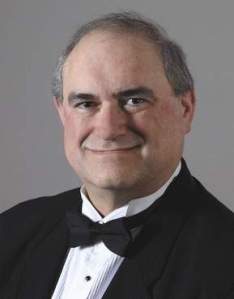”IT’S ONLY A PLAY” is both the title and the most persistent refrain of the frequently uproarious Terrence McNally comedy now to be found at the Manhattan Theater Club. ”Whatever happens tonight, it’s only a play,” the revelers at an opening-night party keep reminding themselves as they wait for the reviews of Broadway’s newest arrival, ”The Golden Egg.” But Mr. McNally knows well that his characters protest far too much. For the fictional show people in ”It’s Only a Play,” the play’s the thing, the only thing – at least until an offer from Hollywood comes along.
Only a writer who loves the theater and has survived its bloodiest wars could have written a comedy like this one, in which naughty show-biz in-jokes coexist with genuine tributes to the theatrical calling. Mr. McNally, the author of some pricelessly funny hits (”Bad Habits,” ”The Ritz”) and the occasional bomb (”The Rink”), is the ideal playwright for the task. Indeed, ”It’s Only a Play” is itself an example of the perilous vicissitudes that attend a career in the American theater. Under the title ”Broadway, Broadway,” this play folded during its 1978 pre-Broadway tryout in Philadelphia. Mr. McNally revised the script and instituted the current title for a well-received 1982 Off Off Broadway production (at the Manhattan Punch Line) that almost no one saw.
The Manhattan Theater Club’s additionally revised edition, directed by John Tillinger, is no doubt definitive. Its cast contains the original star of ”Broadway, Broadway,” James Coco (in funniest form), as well as the director of the 1982 ”It’s Only a Play,” Paul Benedict. Now, as before, Mr. McNally’s comedy is more a cascade of jokes than a play. But, except for roughly 15 minutes of scattered dead spots in Act II, the jokes are so well made that one doesn’t dwell on the playwright’s disinclination to provide the fully drawn characters of ”All About Eve” or the farcical structure of ”Noises Off.” Casual theatergoers should be warned, however, that a knowledge of theatrical ephemera is required to appreciate most of the punch lines. If you cannot identify the likes of Bernard Jacobs, Robert Patrick and ”The Man Who Had Three Arms,” this may not be your hoot.
Among the other butts of Mr. McNally’s cleverest gags are Rita Moreno, Lanford Wilson, Charles Nelson Reilly, Linda Hunt, ”Betty” Bacall and Tovah Feldshuh, not to mention regional theater, preview audiences and certain real-life drama critics (only some of whom work for The New York Times). The forum for the wisecracks is the pink upstairs bedroom (designed by John Lee Beatty) in the moneyed town house where the producer of ”The Golden Egg” is giving ”the party of the year” for ”all Broadway – or what’s left of it.” The only real event in Mr. McNally’s comedy, aside from a reported attack on Arlene Francis by the producer’s pet dog, is the arrival of The Times’s review of the play-within-the-play. The press agent has predicted ”an out-and-out rave.”
While waiting for the newspaper, those who are associated with the play pray for success, even as their best friends secretly wish them failure. Chief among the smiling backbiters is Mr. Coco, cast as James Wicker, a television sitcom star (”I’ll even do ‘Love Boats’!”) who began his career Off Off Broadway with the author of ”The Golden Egg.” Surely Mr. McNally, whose 1969 Off Broadway play ”Next” gave Mr. Coco a career boost, tailored James Wicker for his star. A dyspeptic Humpty Dumpty in a crimson-trimmed tuxedo, Mr. Coco is both hilarious and lovable in his two-faced, egomaniacal bitchery. No sooner do we laugh at his badmouthing of the lead actor in ”The Golden Egg” (”He has all of my mannerisms and none of my warmth”), than we are unexpectedly touched by a speech recalling the now-jaded Wicker’s romantic old dreams of playing Falstaff or Willy Loman in stock.
The evening’s other outstanding performance comes from Joanna Gleason, last seen as the chilly neighbor in ”Joe Egg” and here playing a Tony-winning actress returning to Broadway after several movie flops and more than a few cocaine ”hits.” Christine Baranski, while occasionally too exaggerated in pitch, also earns many chuckles as the neophyte producer, a wealthy dilettante who insists on telling her theatrical associates the meaning of the expression ”break a leg.” In smaller roles, there are sharp contributions by Mr. Benedict, Florence Stanley and Jihmi Kennedy, who respectively impersonate an acerbic magazine drama critic friendly with Lina Wertmuller, a philosophical cabdriver and an aspiring actor who delivers an exceptionally appalling rendition of ”Raindrops Keep Falling on My Head.” Only Mark Blum’s playwright and David Garrison’s director, a Yale prodigy known for his all-male ”Wild Duck,” are at times shrilly acted and written.
Mr. Tillinger’s staging doesn’t miss an opportunity for mirth – down to the last of Rita Ryack’s many witty costumes. But Mr. McNally deserves full credit for the evening’s warmth. The theater people in ”It’s Only a Play” are, to be sure, ridiculously myopic: they know more about the history of the Ethel Barrymore Theater than current events and would rather listen to the barroom philosophy of a former chorus girl from ”Panama Hattie” than read a book. Yet the author’s affection for his self-absorbed characters – and his concern for the survival of their ”noble profession” and even their endangered Broadway – keeps peeking through. ”New York without a theater district might as well be Newark,” says the cabbie, in one of many lines calculated to remind us that the theater is too precious and too precarious for the audience to think of any play as only a play. Great Expectations IT’S ONLY A PLAY, by Terrence McNally; directed by John Tillinger; sets by John Lee Beatty; costumes by Rita Ryack; lighting by Pat Collins; sound by Stan Metelits; production stage manager, Tracy B. Cohen. Presented by Manhattan Theater Club, Lynne Meadow, artistic director; Barry Grove, managing director. At the Space at City Center Theater, 131 West 55th
Street. Gus WashingtonJihmi Kennedy James WickerJames Coco Virginia NoyesJoanna Gleason Frank FingerDavid Garrison Julia BudderChristine Baranski Ira DrewPaul Benedict Peter AustinMark Blum EmmaFlorence Stanley

